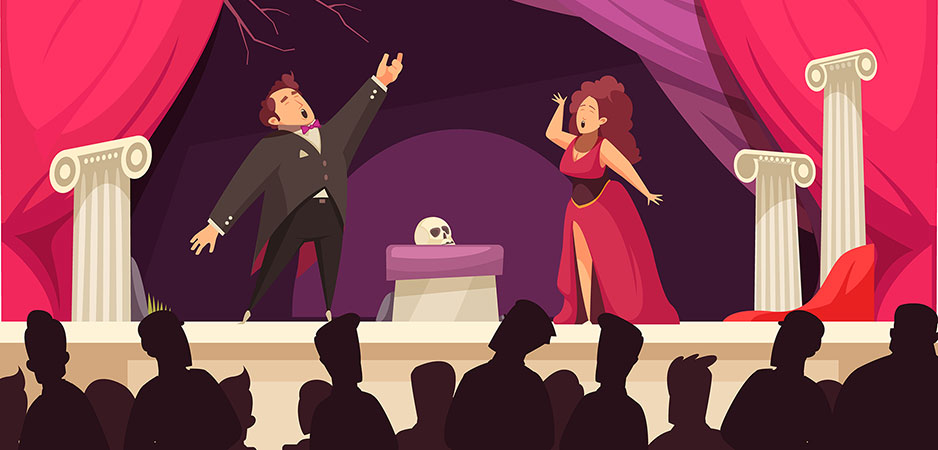When I was a was a young teen attending a German high school in southern Bavarian in the late 1960s, we were made to know how to distinguish between high and popular culture. High culture was Kafka and Thomas Mann, Beethoven and Mozart, Goethe and Berthold Brecht, Fritz Lang and Josef von Sternberg.
Popular, or “trivial,” culture was Karl May, a famous 19th-century author of a large number of adventure stories, most of them taking place in the American West and the Middle East; Johannes Mario Simmel, the author of numerous bestselling novels; Heintje, a Dutch child star singer who melted every grandma’s heart; boulevard comedies from Bavaria and Hamburg; and schmaltzy Heimatfilme (homeland movies), such as the “Sissi” series with Romy Schneider.
Romance Novels Are a Weapon Against Misogyny
This was a time when, on Saturday or Sunday evening — prime time — German public television would program an opera or a piece of classical theater or, more rarely, a Nouvelle Vague — the French New Wave — film. Appreciating high culture, however, did not only mean sitting in front of the TV set late at night, watching Truffault, Godard and Antonioni films. It also meant subjecting oneself to the torture of (largely unsuccessfully) mastering Latin and, a few years later and even more unsuccessfully, ancient Greek.
Even in German higher education, authorities pretended to go with the times, introducing English and, somewhat reluctantly, French, into the humanistic curriculum. It was quite obvious, however, that both languages were “children of a lesser god,” taught because they were useful and, perhaps, also because they were the languages of the nations that had won the war against the Nazis. On the other side of the German border, in the GDR, students had to learn Russian.
A Path Out of Ignorance
Times have changed. Even in Germany, the number of students struggling with Latin has precipitously declined over the past several decades. The reason is obvious. In today’s labor markets, utility trumps Bildung — that elusive German notion of comprehensive education in the most basic sense, a process of leading somebody out of his or her state of ignorance.
Ignorance, however, is a subjective notion. Is somebody ignorant because he or she has no clue who Benito Mussolini was? Is somebody ignorant because he or she has never heard of Frank Zappa? In reality, what constitutes Bildung is to an overwhelming extent subjective, largely determined by those who are in a position to impose their idea of meaning, those who managed to gain “cultural hegemony” — a notion famously associated with the Italian Marxist philosopher Antonio Gramsci.
In Europe, this has been what in Germany is known as the Bildungsbürgertum — the educated middle class, which derived its social status from Bildung rather than money. It imposed its notion of what was supposed to account for “good taste” and what constitutes the canon of high culture.
This did not mean that we would not indulge in reading Karl May and, a few years later, prefer Mario Puzzo’s “The Godfather,” James A. Michener’s “The Drifters” and Henri Charrière “Papillon” to Schiller or Berthold Brecht. But we did it with a bad conscience, as if reading “this kind” of literature — if literature it was at all — constituted a fundamental betrayal of the ideals of Bildung.
Times have changed, and radically so. Today it is blatantly obvious that popular culture has won the war over cultural hegemony — hands down. German public television rarely ever programs an opera, hardly ever a piece of theater. And nobody wants to watch any more classic New Wave movies, such as Alain Resnais’ “Last Year at Marienbad” or Michelangelo Antonioni’s “Blow Up,” which come across as pretentious and, quite frankly, rather boring.
Today, audiences want to be entertained rather than intellectually stunned and disturbed, want to escape from their ordinary and, more often than not, mind-numbing, if not depressing, everyday working lives. This explains, for instance, the popularity of Hallmark movies, particularly during the holiday season where they are regularly programmed during the afternoon on French public television virtually every weekday. And it explains even more the popularity of romance novels, by now the most lucrative genre in contemporary fiction in the US, way ahead of crime fiction. In 2011, romance novels netted $1.5 billion in the US alone — roughly half of all mass-market fiction books sold.
The Guardians of Haute Culture
For the guardians of haute culture, romance novels are perhaps the most denigrated and despised part of popular culture, particularly if they originate in the United States. They represent everything that is wrong with popular culture. As an anti-popular-culture diatribe in the pages of The Guardian put it, “The great majority of popular culture in the UK is worthless, moronic, meretricious, self-serving, anti-democratic, sclerotic garbage: it’s the enemy of thought and change: it should be ignored, marginalized, trashed.”
Life is too short, the author continues, to waste your time watching TV sit coms (or reading romance novels), “when you could be listening to Schumann, trying to get to grips with Beethoven’s Late Quartets, learning Italian so you can read Dante in the original, or wrestling with Ford Madox Ford” (English novelist best known for his “The Good Soldier”). Unfortunately, listening to Schumann has gone out of fashion, and who in their right mind would waste time learning a language spoken by a few million people? The fact is that even today’s most snobbish culture vulture has heard of, and might even appreciate, the Beatles, Led Zeppelin, The Who and the Rolling Stones.
That’s the ultimate insult to good taste — the fact that even the parvenus who make up a significant part of today’s new educated middle class have come to appreciate popular culture. According to a Nielsen report, in 2014, almost half of American romance novel readers (most of them women) had a college degree. This suggests that even the college educated are in need of an escape, a welcome retreat from reality.
This, by the way, is not to denigrate high culture (except, perhaps, for New Wave films). Endeavour Morse, arguably one of the greatest police detectives ever created, finds ultimate solace in listening to classical music, reflecting a perfect combination of popular and elite culture. If high culture smells funny (my appropriation of Frank Zappa’s well-known reflection on jazz), it is because it was highjacked by self-styled cultural Cheka which came to dictate what was good taste and what was not.
For example, opera was high culture; operetta and musical were not. Ironically enough, opera originated as “a widely available form of popular entertainment consumed by people of all social classes.” Milos Forman’s “Amadeus” might be a bit exaggerated, but it probably is not that much off the mark. Mozart’s tunes were popular, as were Verdi’s. It was only when elite social groups appropriated the opera to distinguish themselves from the “unwashed masses” that opera became the paragon of high culture. From now on, “going to the opera” involved a certain dress code, a certain demeanor, a certain level of appreciation of the experience, deemed “sublime.”
Today, opera is just one among many entertainment options. It no longer serves as a badge of distinction (in the sense analyzed by Pierre Bourdieu). Today, even among the educated middle class, binge-watching Netflix no longer exposes you to the opprobrium of your peers — if only because they do the same. Reading romance novels (or listening to them on Amazon Audible) or watching Hallmark holiday movies is no longer something to be enjoyed in the privacy of your home. We have emancipated ourselves from the dictates of good taste, and our world is the better for it.
The views expressed in this article are the author’s own and do not necessarily reflect Fair Observer’s editorial policy.
Support Fair Observer
We rely on your support for our independence, diversity and quality.
For more than 10 years, Fair Observer has been free, fair and independent. No billionaire owns us, no advertisers control us. We are a reader-supported nonprofit. Unlike many other publications, we keep our content free for readers regardless of where they live or whether they can afford to pay. We have no paywalls and no ads.
In the post-truth era of fake news, echo chambers and filter bubbles, we publish a plurality of perspectives from around the world. Anyone can publish with us, but everyone goes through a rigorous editorial process. So, you get fact-checked, well-reasoned content instead of noise.
We publish 2,500+ voices from 90+ countries. We also conduct education and training programs
on subjects ranging from digital media and journalism to writing and critical thinking. This
doesn’t come cheap. Servers, editors, trainers and web developers cost
money.
Please consider supporting us on a regular basis as a recurring donor or a
sustaining member.
Will you support FO’s journalism?
We rely on your support for our independence, diversity and quality.






